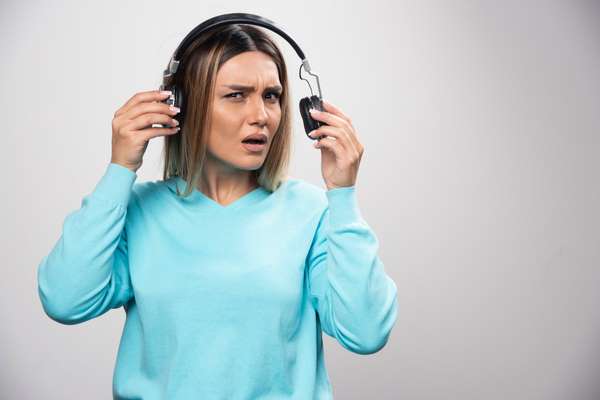The increasing prevalence of auditory processing disorder (APD) among young people may be linked to prolonged use of noise-cancelling headphones, which alter the brain’s ability to filter sounds naturally.

The Growing Concern Over Speech Recognition Difficulties
Audiologists in the UK’s National Health Service report a rise in cases where young individuals struggle with speech recognition despite having normal hearing. Renee Almeida, head of audiology at Imperial College Healthcare NHS Trust, explains that “there is a difference between hearing and listening,” with noise-cancelling devices primarily affecting listening ability. This can lead to difficulty in understanding speech in noisy environments or recognizing unfamiliar accents.
How Noise-Cancelling Technology Affects Auditory Processing
Claire Benton, vice president of the British Academy of Audiology, warns that continuous use of noise-cancelling headphones may cause the brain to “forget” how to naturally distinguish important sounds from background noise. “You’ve almost created this fake environment by putting on these headphones, where you only listen to what you want to listen to. You don’t have to work at it,” she explains. Since auditory processing skills develop until late adolescence, excessive reliance on noise cancellation may disrupt this crucial process.
Challenges in Diagnosis and Treatment of APD
Despite APD becoming more common, access to specialized healthcare remains limited in the UK. The Royal National ENT Hospital in London is the only facility offering a full APD diagnosis, with waiting times of up to nine months. According to the NHS, effective interventions include auditory training, specialized microphones, and hearing aids.
The Need for Further Research and Improved Diagnostics
Dr. Angela Alexander from APD Support highlights the importance of further studies on the potential link between noise-cancelling technology and APD. “What will the future look like if we don’t explore this connection?” she asks. Since APD is often misdiagnosed as attention deficit disorder (ADD), developing more precise diagnostic methods is crucial to ensuring appropriate treatment and preventing long-term auditory challenges.






